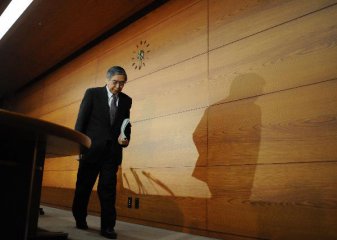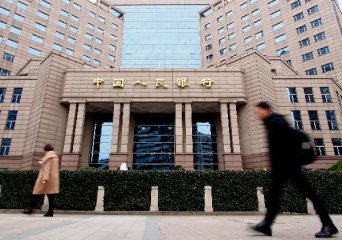ANKARA, July 6 (Xinhua) -- Turkish President Recep Tayyip Erdogan dismissed the country's central bank governor on Saturday, a move that could add to national currency's woes and raise new concerns about the central bank's independence, said experts.
Murat Cetinkaya, who drew ire for his refusal to cut interest rate, was replaced by the deputy governor Murat Uysal, according to a presidential decree in Official Gazette.
No official reason was given for the decision. It is worth noting that Cetinkaya's four-year term was due to end in 2020.
"I think there could be serious consequences to the removal of the head of the central bank before the completion of his term," said Ibrahim Turhan, an economist and former deputy governor of the central bank.
"This move will be likely interpreted by financial markets as a sign of unpredictability about the struggling Turkish economy and give mixed signals to investors," Turhan noted on his Twitter account.
The decision came days after Turkey's inflation slowed to about 15 percent, allowing policy makers more room to start an easing cycle. The next monetary policy meeting of the central bank is scheduled for July 25.
Erdogan has frequently criticized the central bank for keeping borrowing costs high.
While the U.S. Federal Reserve is moving closer to lowering interest rates, "the policy interest rate in my country is 24 percent. This is unacceptable and is hurting Turkey," he complained in June.
The Turkish leader called for lowering the interest rates to boost the economy, describing high rates as "the mother and father of all evils."
Erdogan has been using the powers granted after last year's general election, which marked the transfer of the parliamentary system to the executive presidency.
The first batch of presidential decrees issued under the new rules included allowing Erdogan to name central bank governors, an appointment that previously required the approval of the cabinet.
The Turkish economy shrank sharply for the second straight quarter in early 2019, amid soaring inflation and unemployment.
Cetinkaya was criticized for acting too slowly to tighten monetary policy during a currency meltdown in the summer of 2018, which led to the considerable slowdown of Turkey's economy and its first recession in a decade earlier this year.
In the face of the market turmoil, the former head of the central bank hiked the benchmark interest rate by 625 basis points in September and has since held onto it despite criticism from Erdogan.
In his first remarks, the new governor Uysal said he would continue to implement monetary policy independently and in line with his mandate and authority.





















Latest comments